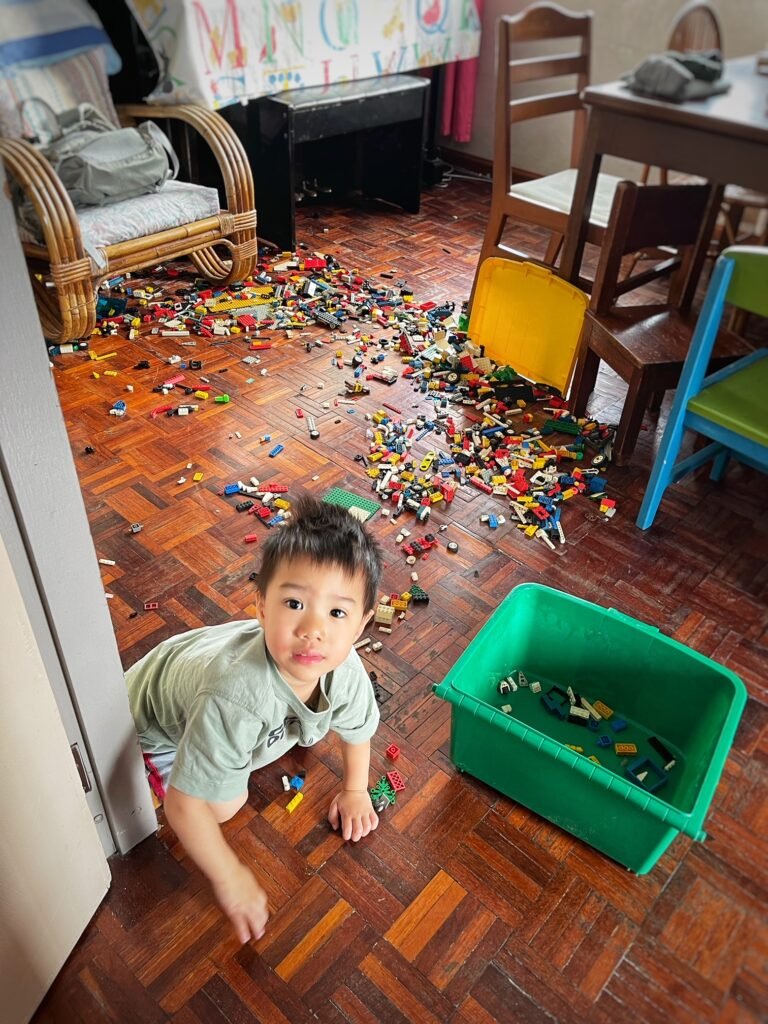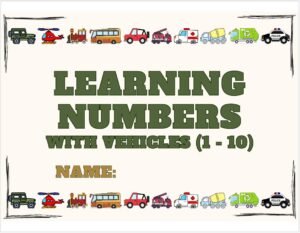Discover effective strategies to discipline your child and encourage better listening skills. Learn how to stay calm, set boundaries, and use positive reinforcement to manage challenging behaviours during the ‘terrible twos.
I read an article recently about a mom teaching her son a lesson after he refused cleaning up his room, which his mom had asked him to do so for 2 days. His response was “No. You clean it up, mommy”. Despite she offered to help, and I believe she had also tried various other approaches to make it work, nothing worked. As a result, she trashed his toys and put them down in basement. You can read the article here.
I am facing the same issue with my 2.5-year-old son at the moment. Welcome to the “terrible twos!” “No” has become the most common word that I can hear now when I ask him to do something such as brushing teeth. I can feel my temper rising, like a volcano ready to erupt, which is completely unlike me. I’ve always been calm and loving, but it might be not the case now. If you are in the same boat, I totally understand your frustration. To fellow moms out there! Hold on, take a deep breath and keep breathing!
I sat down, took deep breath, researched what could I do to improve the situation. Here are some parenting tips to share with those who are struggling out there. Feel free to let me know if you have other suggestions:
1. Understand Your Child’s Development Stages
This is actually for your own good. Once you understand children’s development stages, you will be able to set appropriate expectations and your emotion will be much stable, not to get angry for no reason. For example, you can’t expect a 1-year-old child to share their toys or take turns as they don’t understand the concept yet.
2. Examine The Situation
Reconsider before getting angry to see if your child is truly ignoring your words or if there are other factors involved such as tiredness, frustration, or lack of language skills to communicate.
3. Make Eye Contact With Your Child
This is to strengthen the communication with eye contact. Let your child know you want to talk and solve the problem together.
4. Acknowledge Their Feelings With Words
In “How to Talk so Little Kids Will Listen” by Joanna Faber & Julie King, it suggested that after acknowledging their feelings, try to avoid using the word “but” as it could make them feel like you are explaining why their feelings are wrong. Instead, use “the problem is…”. This shows that the problem can be solved without ignoring their feelings.
Examples from the book:
“It can be irritating to have to deal with a baby when you’re trying to build a spaceship! The problem is, babies don’t understand about Legos.”
“How disappointing to find an empty box when you’re in the mood for cookies! The problem is, it’s too late to go shopping.”
5. Give Clear And Simple Instructions
Tell them “what to do” rather than “don’t”.
Instead of saying “Don’t play with the bin. It’s dirty,” try saying, “Hey baby, please go and play with your trucks in the living room.”
6. Offer Choices
Children like to have controls and make decisions. I know it is frustrated sometimes, but hey, it is part of the development. Try to offer choices that you can accept and allow to happen. For example, if your child doesn’t want to brush their teeth when they wake up in the morning, you can offer 2 choices – dress up first and then brush teeth, or vice versa.
7. Model The Behaviour
Some children don’t understand what you want them to do. Demonstrate the behaviour you expect to them. For example: “Look how I put the trucks back into the box. Can you do this with me?
8. Use Positive Discipline Instead Of Punishment
Positive discipline is about setting rules and boundaries, focusing on logical or natural consequences for wrong doings. On the other hand, punishment often brings negative outcomes as it often come with penalties. The negative consequences are usually not related to the wrongdoing.
Example,
Punishment: Xavier doesn’t pack up his trucks, so he can’t go to playground tomorrow.
Discipline: Xavier doesn’t want to pack up his trucks, so he cannot play with the trucks again until tomorrow.
9. Stay Calm And Remind Them Of Consequences
Remember to stay calm and let your child know beforehand what the consequences are if they don’t listen to you. Tie the consequences to a certain behaviour. Execute the consequences calmly.
10. Praise And Appreciate Them For Their Efforts – Positive Reinforcement
Describe what they’ve done and praise their efforts.
Example
“I can see you’ve already packed up the trucks. Great job! I’m so proud of you!”
Disciplining young children or toddlers always take time. Remember to stay calm, patient, consistent and loving. I am sure your child will learn to listen and follow instructions. Hang in there and all the best!








